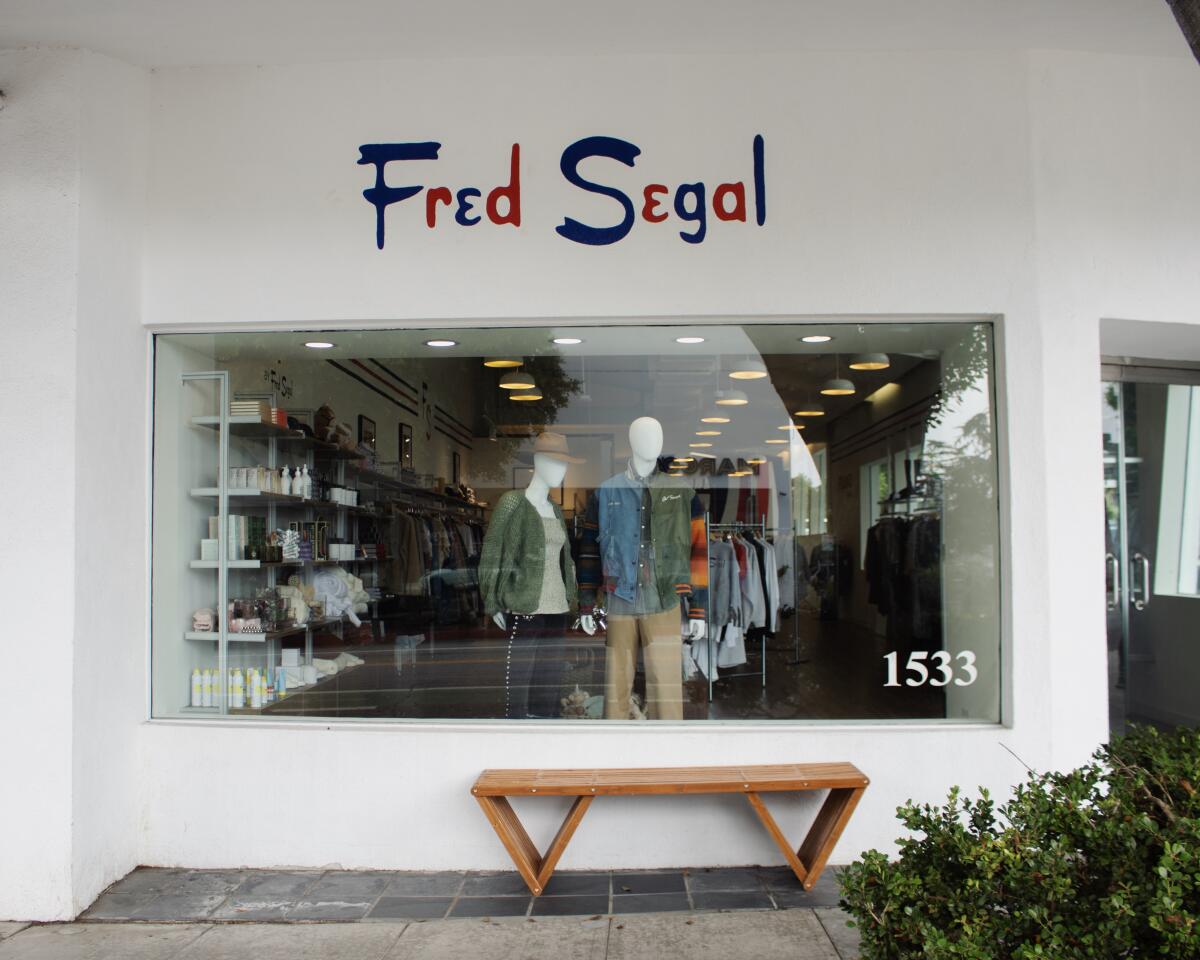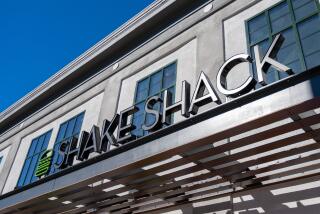Fred Segal closes its remaining stores, ending a Los Angeles fashion era

Fred Segal, once a centerpiece to the Los Angeles fashion scene, closed its two remaining stores Tuesday, bringing a quiet end — at least for now — to a name that endured for decades as a shopping destination.
The brand, which once had nine stores in California and locations in Switzerland and Taipei, Taiwan, succumbed to a challenging retail landscape, never recovering from the impact the COVID-19 pandemic had on sales despite being a fixture of Los Angeles fashion since the 1960s, said owner Jeff Lotman.
When Lotman bought the company in 2019, he said he had no plans to run the day-to-day operations of the stores, but was forced into the role by the pandemic.
“Everything just fell apart, and then I sort of had to become a retailer, which is not what I planned to do,” he said. “I knew nothing about retail.”
Instead, Lotman, who owns the brand licensing company Global Icons, had aspired to oversee a dramatic expansion of the Fred Segal brand that was supposed to include around 20 new shops in major cities across the country and a move into home decor and accessories.
“It’s not that retail is dying,” Lotman said at the time. “Boring retail is dying.”
The marquee name first appeared in 1961, when Fred Segal opened a small shop in West Hollywood, which grew into a cultural touchstone interwoven into the identity of Los Angeles. Its high-end, California-inspired line of clothes included bikinis, denim shorts and tank tops, often blending luxury with a laid-back look.
The company made its way into popular culture, getting referenced in shows such as “Beverly Hills, 90210” and “Dawson’s Creek” and attracting celebrity customers including Jennifer Aniston and Diana Ross.
Before the pandemic, Lotman said, the company had pending deals to open stores in Dubai, Canada and Japan. The two stores closing Tuesday are in West Hollywood and Malibu.
“Sixty years the company’s been around, and it’s a shame that it’s finally coming to a close,” Lotman said.
One of the company’s downfalls was not having enough self-branded products, Lotman said. Fred Segal stores carried close to 200 outside brands but had few of their own offerings.
“That’s really what we needed to develop to make this thing work,” Lotman said. “Retail is hard and being a multi-brand retailer is even harder.”
While the majority of the Fred Segal empire is shut down, including its online store, a Fred Segal Home furnishings store will remain open in Culver City.
The Segal family owns the Fred Segal trademark, said Lotman, who was licensing the trademark. Any decision about whether to open new stores or begin selling online again would be up to them, he said.
Larry Russ, the family’s attorney, said this is not the end of the road for the brand, but could not share more information.
“We are going to be looking for a new operator to open up more stores in the future,” he said.
Lotman said he isn’t aware of any concrete plans to reopen business, but he’s optimistic.
“Hopefully someone may pick it back up and get it to go,” he said. “It is truly one of the great fashion brands out there.”
More to Read
Inside the business of entertainment
The Wide Shot brings you news, analysis and insights on everything from streaming wars to production — and what it all means for the future.
You may occasionally receive promotional content from the Los Angeles Times.











